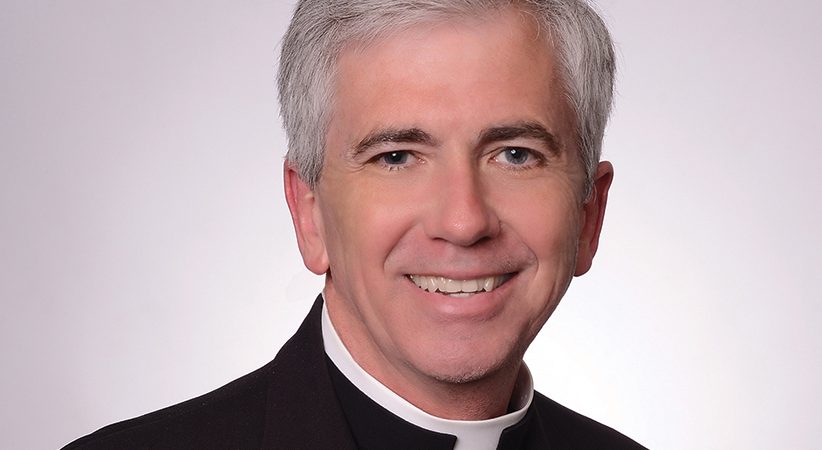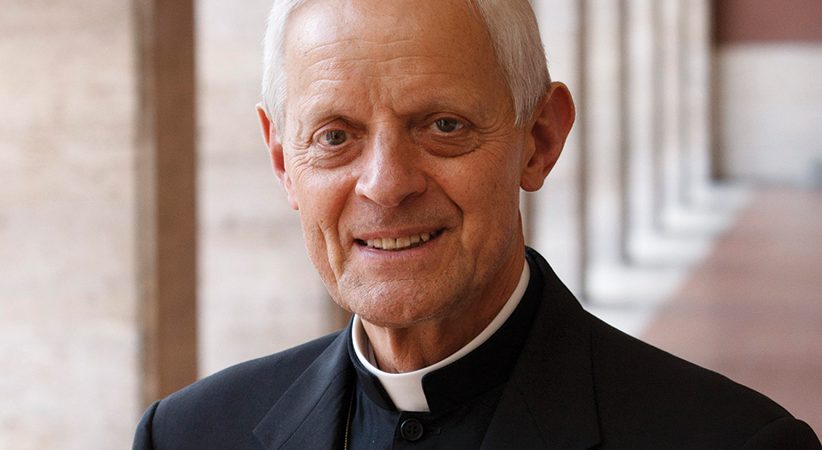Simplifying Difficulties
Making complicated situations bearable
Father Patrick M. Carrion Comments Off on Simplifying Difficulties
 Do you ever get exasperated as to why things get so complicated? You are planning something in your head, but when it comes time to execute it, it becomes so complicated. Something that you think will be, and should be, a cinch to pull off, you decide to abandon, as it is now too difficult. At every turn, there is an obstacle.
Do you ever get exasperated as to why things get so complicated? You are planning something in your head, but when it comes time to execute it, it becomes so complicated. Something that you think will be, and should be, a cinch to pull off, you decide to abandon, as it is now too difficult. At every turn, there is an obstacle.
For example, all that we wanted was a list of parishioners’ offertory donations over the last few years. I pictured an Excel document with parishioners’ names in column A and the next few columns indicating the parishioners’ donations for the last four calendar years — 2019, 2020, 2021 and 2022. The hope was to view, at a glance, each household’s pattern. Is it consistently going up, or down, or flat, or with no consistency?
All parishes have some software into which data is fed in the hope that it will spit out that information in formats to study the trends. Each week, someone enters the donors’ contributions. There are amounts donated to the weekly offertory, another for the diocesan collection, another for the “poor box,” etc.
When it is time, however, to execute the idea, where the desired fields of interest and parameters have been determined and the “submit” button is pushed and exported to Excel, the data is all there but impossible to analyze. The first family’s data is in column A from rows 1 to 6. The second family, too, is in column A from rows 7 to 10 and so forth for the next several thousand rows. There is no way to query the data.
A useless query of information compels a call to the help desk of the software company who receives an annual fee for their expertise. Eventually, after a few phone calls, the data arrives in a way that is useful to analyze. Why is the software program so difficult that the front line (parish staff) cannot create the typical queries easily, but instead requires the creators of the software to do it? Why does the simplest thing have to be so difficult?
Sometimes “complicated” is thrust upon us to be muddled through; it is what it is, and we cannot change it. Other complicated areas might be changeable — that is, if it is decided to uncomplicate them.
Take the simple semiannual activity of decorating the church for Easter and Christmas. Presently, parishes are in between cleaning up after Christmas and ordering the lilies for Easter. The same group that has always decorated the church is anxious to order the flowers, reserve the church, contact the same volunteers, etc. Though the ordering, contacting and decorating need not be on the staff’s plate, the complicated ripple effect seems to end up there. It is time to uncomplicate.
This past Christmas and now moving into Easter, it was decided to change it up. The drama each season of several hours spent moving plants a half inch this way and that way is draining. This past Advent, while reserving the church for the regular decorators, it just so happened the religious education children were in class, too.
The staff decided to include the children by having a parade of poinsettia bearers, Mary and Joseph bearers, sheep bearers, etc. All the kids carried something, while the music director played Christmas-related hymns. During “O Come, O Come, Emmanuel,” the smaller kids carried in collection baskets full of straw to dump on the table for the Nativity scene. During “Away in the Manger” the next older grades, who were capable enough to carry the shepherds, sheep, Mary and Joseph, and the Christ Child statues, marched so proudly. Since the poinsettias are a little bulkier, the middle school kids — singing “Hark! The Herald Angels Sing” — placed them all around the church (with some guidance). In less than one hour, the complicated task of decorating the church for Christmas was simply completed by the kids to whom the kingdom of God belongs.
Later, on Epiphany, when the Christmas season was coming to a close, the deacon and I asked young adults and a few families as they entered Sunday Mass, “Do you have a few minutes after Mass to help with something?” All said “yes” before they even knew “for what.”
“We are going to take down the Christmas trees and pack up the lights, tree stands, put the Nativity scene away and turn Christmas into Ordinary Time.” The 11 a.m. Mass ended about noon, and by 12:30 p.m. everything was down, packed and swept just as a family was arriving for a 1 p.m. baptism.
Christmas 2023 is on Monday, therefore, the Fourth Sunday of Advent is Christmas Eve. The plan is to ask those who attend the last Mass on the Fourth Sunday of Advent, “Can you stay a few minutes to turn Advent into Christmas in 60 minutes or less.” Sometimes, it can be that simple.
FATHER PATRICK M. CARRION is the pastor of St. Ignatius of Loyola, Ijamsville, Maryland, and the director of Cemetery Management for the Archdiocese of Baltimore.





